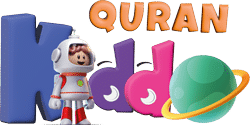Wisdom is the loss of a believer, so seek to learn it even through hypocrites.
Ali ibn Abi Talib (as)
It can be challenging to convey the deep and often complex teachings of the Heavenly Quran in a way that is both understandable and engaging for young minds.
Age-appropriate strategies can make this task easier, ensuring that children not only learn but also appreciate the wisdom of Quran.
This article delves into various strategies for teaching Quranic concepts to children of different age groups, emphasizing the importance of adaptability and creativity in the teaching process.
Understanding Developmental Stages
Children’s cognitive and emotional development varies greatly with age. To effectively teach Quranic concepts, it’s crucial to understand these developmental stages and tailor your approach accordingly:
- Early Childhood (Ages 3-6): At this stage, children are highly imaginative and learn best through play, stories, and sensory experiences. They have a limited attention span and require simple, concrete concepts.
- Middle Childhood (Ages 7-10): Children in this age group are beginning to develop logical thinking skills and can handle more complex stories and ideas. They enjoy interactive learning and benefit from activities that involve problem-solving and group work.
- Pre-Adolescence and Adolescence (Ages 11-14+): Pre-teens and teenagers are capable of abstract thinking and can engage in deeper discussions about moral and ethical issues. They seek relevance in their learning and appreciate being treated with respect and given some autonomy.
Strategies for Early Childhood (Ages 3-6)
- Storytelling:
- Interactive Stories: Interactive stories also provide a way for children to connect emotionally with the teachings of the Grand Quran. By presenting the stories and concepts in a narrative format, children can relate to the characters and events on a personal level, which can help to foster a sense of empathy and understanding for the messages that the Holy Quran imparts. This emotional connection can be a powerful tool for helping children to internalize the values and teachings of the Noble Quran.Furthermore, interactive stories can cater to different learning styles and preferences, making them a versatile tool for early childhood education. Some children may learn best through visual or auditory stimuli, while others may prefer hands-on activities or interactive experiences. By offering a variety of interactive elements, such as videos, audio recordings, quizzes, and games, interactive stories can accommodate a range of learning styles and preferences, making them an inclusive and effective tool for teaching Quran to young children.In addition to supporting children’s learning and understanding of the Holy Quran, interactive stories can also help to foster a love for the text and a sense of reverence for its teachings. By presenting the stories and concepts of the Glorious Quran in a fun and engaging way, interactive stories can make the material more accessible and relatable for young children, helping to create a positive association with the text from an early age.
- Moral Lessons: Focus on the moral lessons of the stories, such as kindness, honesty, and sharing. Explain these values in a context that relates to their daily experiences.

- Songs and Rhymes:
- Simple Nasheeds: One of the main benefits of using simple nasheeds for early childhood learning of the Holy Quran is that they are easy for children to remember. The catchy tunes and repetitive lyrics of nasheeds make them ideal for young children, who may struggle to remember longer texts or verses from the Sacred Quran. By listening to and singing along with nasheeds, children can internalize the teachings of the Noble Quran without feeling overwhelmed or intimidated by the complexity of the text.In addition to being easy to remember, simple nasheeds can also help young children understand the meanings of the teachings they are learning. The lyrics of many nasheeds are written in simple and easy-to-understand language, making it easier for children to grasp the concepts being conveyed. By listening to and singing along with nasheeds, children can develop a deeper understanding of the Grand Quran and its teachings.
- Repetition: Use repetitive phrases and songs to reinforce key concepts. For example, repeating short verses or phrases that emphasize God’s love and mercy.
- Visual and Sensory Activities:
- Crafts and Coloring: Coloring pages featuring verses from the Noble Quran or scenes from Islamic history can also be a powerful tool for early childhood learning. As children color and decorate these pages, they can reflect on the meaning and significance of the words and images before them. This process encourages children to think critically about the Quranic teachings and how they apply to their own lives, fostering a deeper understanding and appreciation of their faith.Furthermore, crafts and coloring can be used as a means of reinforcing the memorization of Quranic verses and teachings. By creating visual representations of the material, they are learning, children are more likely to retain the information and recall it when needed. This hands-on approach to learning can be particularly effective for young children, who may struggle to memorize abstract concepts through traditional methods alone.Furthermore, crafts and coloring can be used as a means of reinforcing the memorization of Quranic verses and teachings. By creating visual representations of the material, they are learning, children are more likely to retain the information and recall it when needed. This hands-on approach to learning can be particularly effective for young children, who may struggle to memorize abstract concepts through traditional methods alone.
- Sensory Play: Use sensory bins with objects related to Quranic themes (like sand for the story of the Prophet Musa) to make learning tangible and fun.
- Modeling Behavior:
- Parental Example: One of the key strategies for early childhood learning in the Holy Quran is through parental example. Children are like sponges, absorbing everything they see and hear around them. Parents serve as role models for their children, and their behavior and actions have a profound impact on their children’s development. The Glorious Quran emphasizes the importance of living a righteous and virtuous life as a means of guiding children on the right path. In Surah Al-Imran, verse 103, Allah says, “And hold firmly to the rope of Allah, all together and do not become divided. And remember the favor of Allah upon you – when you were enemies and He brought your hearts together and you became, by His favor, brothers. And you were on the edge of a pit of the Fire, and He saved you from it. Thus does Allah make clear to you His verses that you may be guided.” This verse highlights the importance of unity and brotherhood among believers, which is something parents can teach their children through their own actions.Parents can also nurture their children’s love for Allah and Quran by incorporating religious practices into their daily lives. For example, parents can recite Quranic verses and prayers in the presence of their children to familiarize them with the words of Allah. In Surah Al-Baqarah, verse 197, Allah says, “And take provisions, but indeed, the best provision is Taqwa (piety, righteousness). So fear me, O you of understanding.” This verse emphasizes the importance of Taqwa, or God-consciousness, as the best provision for the journey of life. Parents can instill this value in their children by practicing Taqwa themselves and teaching them to do the same.
- Simple Prayers: Teach simple prayers and dua (supplications) and encourage their use in daily routines, such as before meals or bedtime.

Strategies for Middle Childhood (Ages 7-10)
- Engaging Storytelling:
- Detailed Narratives: Middle childhood is a crucial time for children to develop their cognitive abilities and learn new concepts. This is also a time when children are more curious and eager to explore the world around them. Detailed narratives can be a powerful tool to engage children in learning the Sacred Quran as they provide context and meaning to the verses.By using detailed narratives, children are able to connect with the stories and characters in the Noble Quran on a deeper level. This can help them retain the information better and apply it to their daily lives. For example, the story of Prophet Ibrahim’s sacrifice can teach children the importance of obedience and faith in Allah.Additionally, detailed narratives can make learning the Heavenly Quran more enjoyable for children. By bringing the stories to life through vivid descriptions and engaging storytelling, children are more likely to stay focused and interested in the material. This can help them develop a love for the Holy Quran and a desire to continue learning and studying it.
- Moral Discussions: Discuss the morals of the stories and how they apply to everyday life. Use examples from the children’s own experiences to make the lessons relatable.
- Interactive Learning:
- Group Activities: One of the key benefits of group activities is that they foster a sense of community and belonging among children. By learning the Sacred Quran in a group setting, children are able to interact with their peers, share ideas, and support each other in their learning journey. This sense of camaraderie can help motivate children to engage with the material and stay committed to their studies.Group activities also provide children with the opportunity to develop important social and communication skills. Working together on Quranic recitation, memorization, or understanding can help children learn how to collaborate, communicate effectively, and resolve conflicts in a positive manner. These skills are essential for children to navigate the complexities of social interactions both inside and outside of the classroom.
- Role-Playing: One of the key benefits of using role-playing as a learning strategy for middle childhood children is that it allows them to actively engage with the material in a fun and creative way. Rather than passively listening to lectures or reading textbooks, children can step into the shoes of different characters from Quranic stories and scenarios, allowing them to experience the teachings firsthand. This hands-on approach helps to make the material more relatable and memorable, as children can see how the lessons from the Noble Quran apply to their own lives.Role-playing also encourages children to think critically and problem-solve, as they must navigate different situations and make decisions based on the teachings of the Holy Quran. This can help children develop important cognitive skills such as decision-making, reasoning, and analytical thinking. By applying these skills to real-life scenarios, children can better understand and internalize the teachings of Quran, ultimately strengthening their faith and connection to Islam.In addition to cognitive benefits, role-playing can also help children develop important social and emotional skills. By working together with their peers to act out different scenarios, children learn how to communicate effectively, collaborate, and resolve conflicts peacefully. They also build empathy and understanding for others, as they step into the shoes of different characters and see things from their perspective. These social and emotional skills are essential for children’s overall development and can help them navigate the complexities of the world around them.
- Use of Technology:
- Educational Apps and websites: educational apps and websites like DarulQuran Academy can be invaluable tools for children in the middle childhood stage, typically ranging from ages 7-10, who are learning the Sacred Quran. These digital resources offer a unique and engaging way for children to enhance their understanding and memorization of the Noble Quran, fostering a deeper connection to their faith and cultural heritage.One of the key benefits of using educational apps and websites for Quranic learning is the accessibility they provide. Children can access these resources from the comfort of their own homes, allowing them to study at their own pace and on their own schedule. This flexibility is especially important for children in the middle childhood stage, who may have busy schedules with school and extracurricular activities.

Strategies for Pre-Adolescence and Adolescence (Ages 11-14+)
- In-Depth Discussions:
- Abstract Concepts: Abstract concepts can be powerful strategies for pre-adolescents and adolescents to learn the Sacred Quran. As children enter this critical stage of development between the ages of 11-14, they are beginning to move beyond concrete thinking and to develop more complex cognitive skills. By introducing abstract concepts into their Quranic studies, educators can help young learners deepen their understanding of the text and connect it to their own lives.One abstract concept that can be particularly useful for this age group is the idea of symbolism. The Holy Quran is filled with symbols and allegories that convey deep spiritual truths. By teaching pre-adolescents and adolescents how to interpret these symbols, educators can help them uncover hidden meanings and appreciate the richness of the text. For example, the story of Prophet Yusuf can be seen as a symbol of resilience and forgiveness, while the parable of the blind man and the seeing man in Surah Al-Baqarah can be a lesson in spiritual insight and humility.
- Ethical Debates: The teachings of the Sacred Quran can provide valuable insights on topics such as honesty, integrity, compassion, and justice. By exploring these teachings in a group setting, pre-adolescents and adolescents can learn to think critically and develop their own opinions on ethical dilemmas. This process can also help them build empathy and understanding towards others.Engaging in ethical debates using the Noble Quran as a guide can also help pre-adolescents and adolescents develop their communication and critical thinking skills. By discussing and debating different viewpoints, they can learn to articulate their thoughts and listen to others with respect and empathy. This can help them become more effective communicators and problem solvers in their personal and professional lives.
- Relevance to Modern Life:
- The Heavenly Quran is the holy book of Islam, believed to be the word of God as revealed to the Prophet Muhammad. It is a comprehensive guide to life, covering every aspect of human existence from morality and ethics to personal conduct and social interactions. For pre-adolescents and adolescents, the teachings of Quran can offer invaluable wisdom and guidance that can help them navigate the challenges of growing up in today’s world.One of the key strategies for pre-adolescents and adolescents to learn from Quran is by studying its verses and reflecting on their meanings. The Noble Quran is a rich source of timeless wisdom and guidance that can help young people develop a strong moral compass and make wise decisions in their lives. By studying Quran regularly, pre-adolescents and adolescents can gain a deeper understanding of themselves, their place in the world, and their responsibilities as individuals.Another important strategy for pre-adolescents and adolescents to learn from Quran is by emulating the example of the Prophet Muhammad. The Sacred Quran teaches that the Prophet Muhammad was the perfect role model for all humanity, exemplifying the highest moral character and conduct. By studying the life of the Prophet Muhammad and trying to live by his example, pre-adolescents and adolescents can develop a strong sense of empathy, compassion, and integrity that will serve them well in their interactions with others.Additionally, pre-adolescents and adolescents can learn important life skills from the Grand Quran, such as patience, perseverance, and resilience. The Sacred Quran teaches that life is a journey and that challenges and hardships are an inevitable part of that journey. By internalizing these teachings and striving to embody them in their daily lives, pre-adolescents and adolescents can develop the strength and fortitude to overcome adversity and emerge stronger and wiser from their experiences.
- Project-Based Learning:
- Research Projects: Research projects can serve as effective strategies for pre-adolescents and adolescents, specifically those aged 11-14+, to engage with the Noble Quran. By encouraging students to delve into topics related to Islamic teachings and principles, research projects can help them deepen their understanding of the Heavenly Quran’s messages and apply them to their daily lives. One benefit of using research projects in this age group is that it fosters critical thinking skills. As students explore different aspects of the Glorious Quran through their research, they are forced to analyze information, draw conclusions, and think critically about how these teachings relate to their own lives. Additionally, research projects can help pre-adolescents and adolescents develop a sense of responsibility towards their faith. By taking ownership of their learning through independent research, students are more likely to feel a personal connection to the Holy Quran and its teachings. Furthermore, research projects provide an opportunity for students to engage in meaningful discussions with their peers. Collaborating on research projects allows students to share insights, ask questions, and learn from one another’s perspectives on the Grand Quran. In conclusion, utilizing research projects as strategies for pre-adolescence and adolescence (ages 11-14+) for learning the Noble Quran can be a valuable tool in helping students deepen their understanding of Islamic teachings, foster critical thinking skills, develop a sense of responsibility towards their faith, and engage in meaningful discussions with peers.
- Community Service: Organize community service projects that embody the principles of the Holy Quran, such as helping the needy, environmental stewardship, or promoting social justice.
Inconclusion; Teaching Quranic concepts to children requires a thoughtful and adaptable approach that takes into account their developmental stages and individual learning styles.
ng connection to the Sacred Quran and its teachings. The goal is not only to impart knowledge but also to inspire a love for learning and a commitment to living by the values and principles of the Quran.
By integrating storytelling, interactive learning, technology, and real-life applications, we can make Quranic education engaging and meaningful for children of all ages.
As they grow and develop, these early lessons will serve as a strong foundation for their spiritual and moral growth, guiding them throughout their lives.


